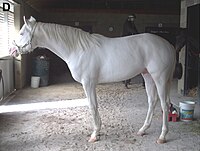
Deep analysis of the LRTOMTc.242G>A variant in non-syndromic hearing loss North African patients and the Berber population: Implications for genetic diagnosis and genealogical studies.
Sign Up to like & getrecommendations! Published in 2021 at "Molecular genetics & genomic medicine"
DOI: 10.1002/mgg3.1810
Abstract: Autosomal recessive non-syndromic hearing loss (ARNSHL) is the most common inherited sensory impairment. It is particularly frequent in North African populations who have a high rate of consanguineous marriage. The c.242G>A homozygous variant in LRTOMT… read more here.
Keywords: hearing loss; variant; syndromic hearing; non syndromic ... See more keywords

Variants in CDH23 cause a broad spectrum of hearing loss: from non-syndromic to syndromic hearing loss as well as from congenital to age-related hearing loss.
Sign Up to like & getrecommendations! Published in 2022 at "Human genetics"
DOI: 10.1007/s00439-022-02431-2
Abstract: Variants in the CDH23 gene are known to be responsible for both syndromic hearing loss (Usher syndrome type ID: USH1D) and non-syndromic hearing loss (DFNB12). Our series of studies demonstrated that CDH23 variants cause a broad… read more here.
Keywords: syndromic hearing; loss; non syndromic; variants cdh23 ... See more keywords

Whole exome sequencing identifies novel compound heterozygous pathogenic variants in the MYO15A gene leading to autosomal recessive non-syndromic hearing loss
Sign Up to like & getrecommendations! Published in 2020 at "Molecular Biology Reports"
DOI: 10.1007/s11033-020-05618-w
Abstract: Autosomal recessive non-syndromic hearing loss (ARNSHL) is a highly heterogeneous disease, for which more than 70 genes have been identified. MYO15A mutations have been reported to cause congenital severe-to-profound HL. In this study, we applied… read more here.
Keywords: syndromic hearing; hearing; non syndromic; recessive non ... See more keywords

Autosomal Dominant Non-Syndromic Hearing Loss (DFNA): A Comprehensive Narrative Review
Sign Up to like & getrecommendations! Published in 2023 at "Biomedicines"
DOI: 10.3390/biomedicines11061616
Abstract: Autosomal dominant non-syndromic hearing loss (HL) typically occurs when only one dominant allele within the disease gene is sufficient to express the phenotype. Therefore, most patients diagnosed with autosomal dominant non-syndromic HL have a hearing-impaired… read more here.
Keywords: non syndromic; autosomal dominant; dominant non; gene ... See more keywords